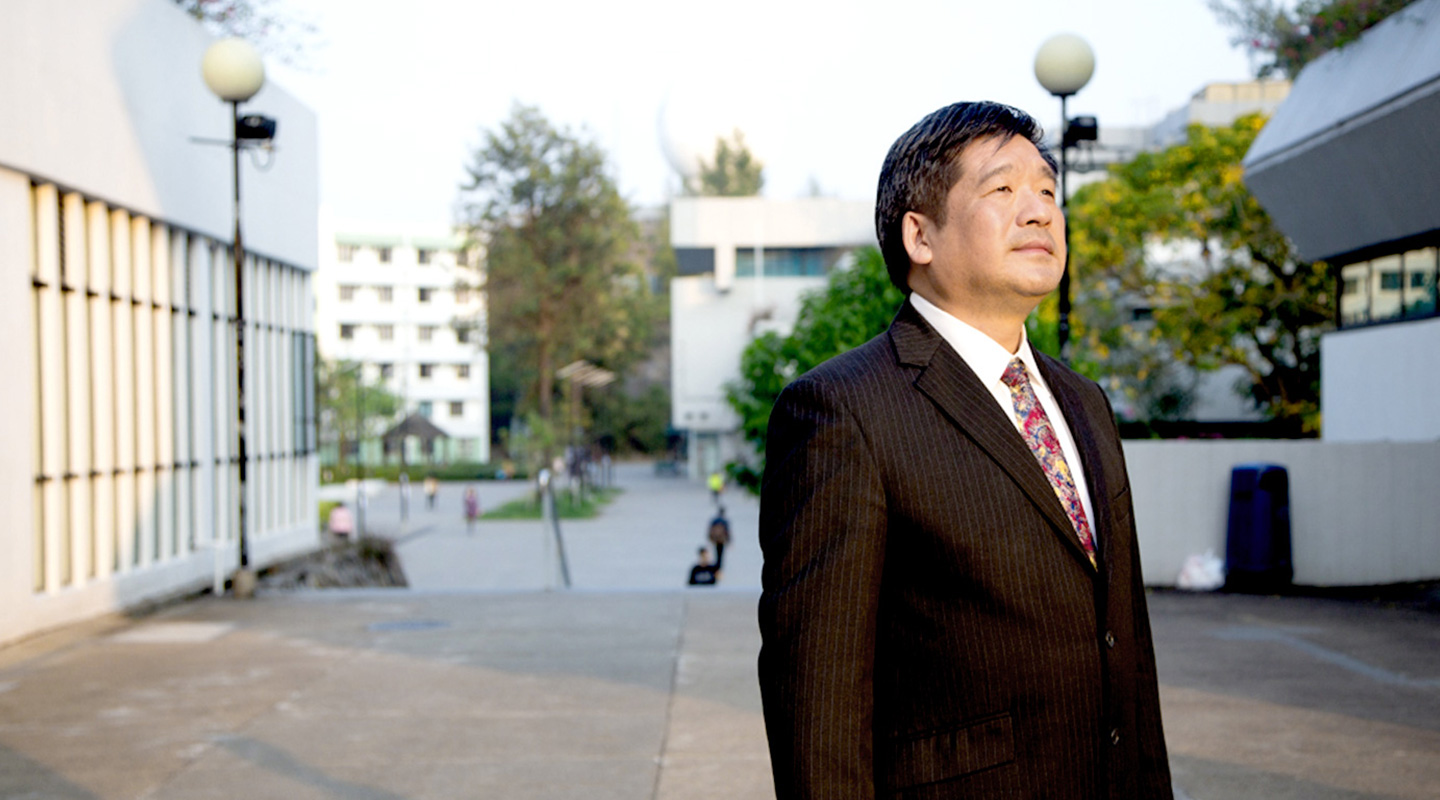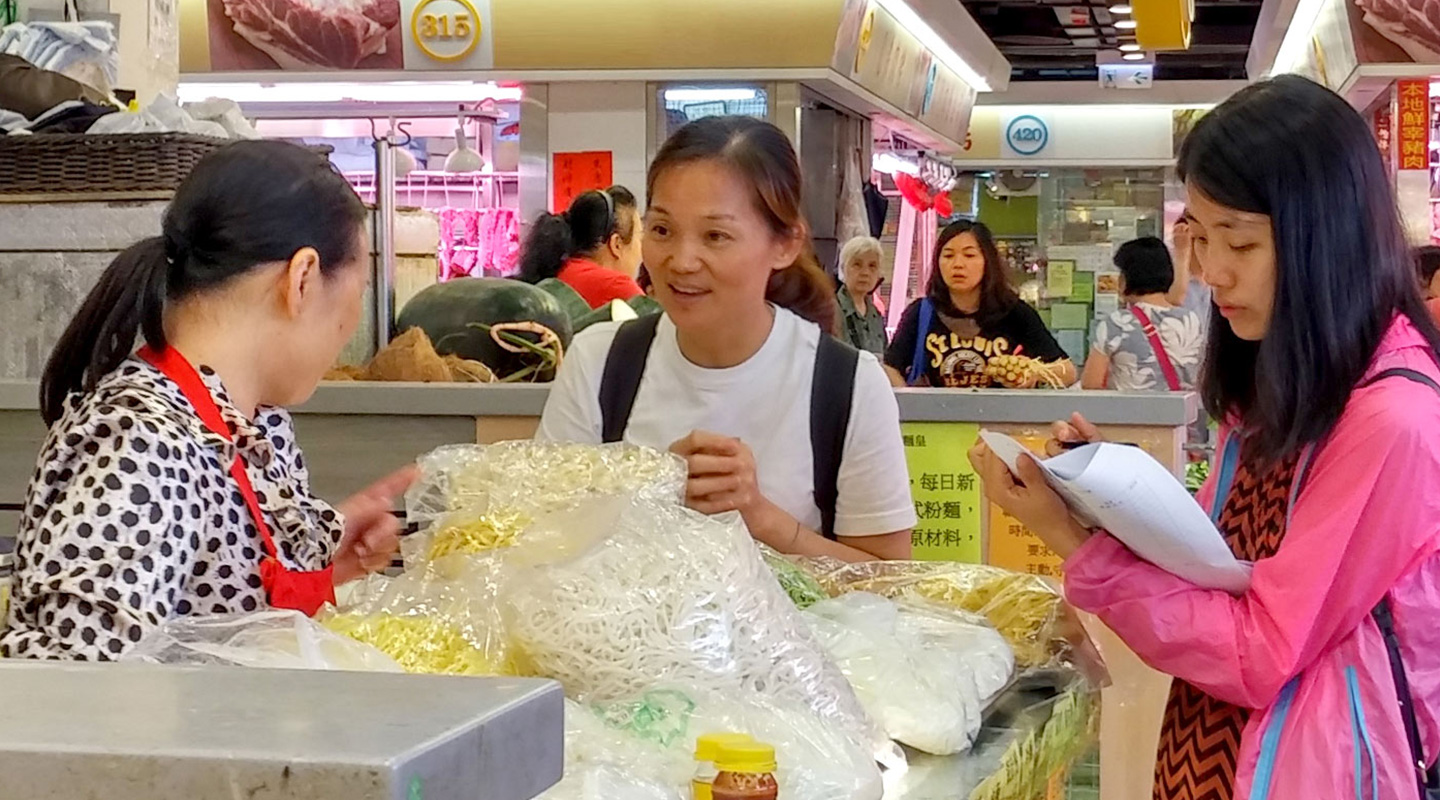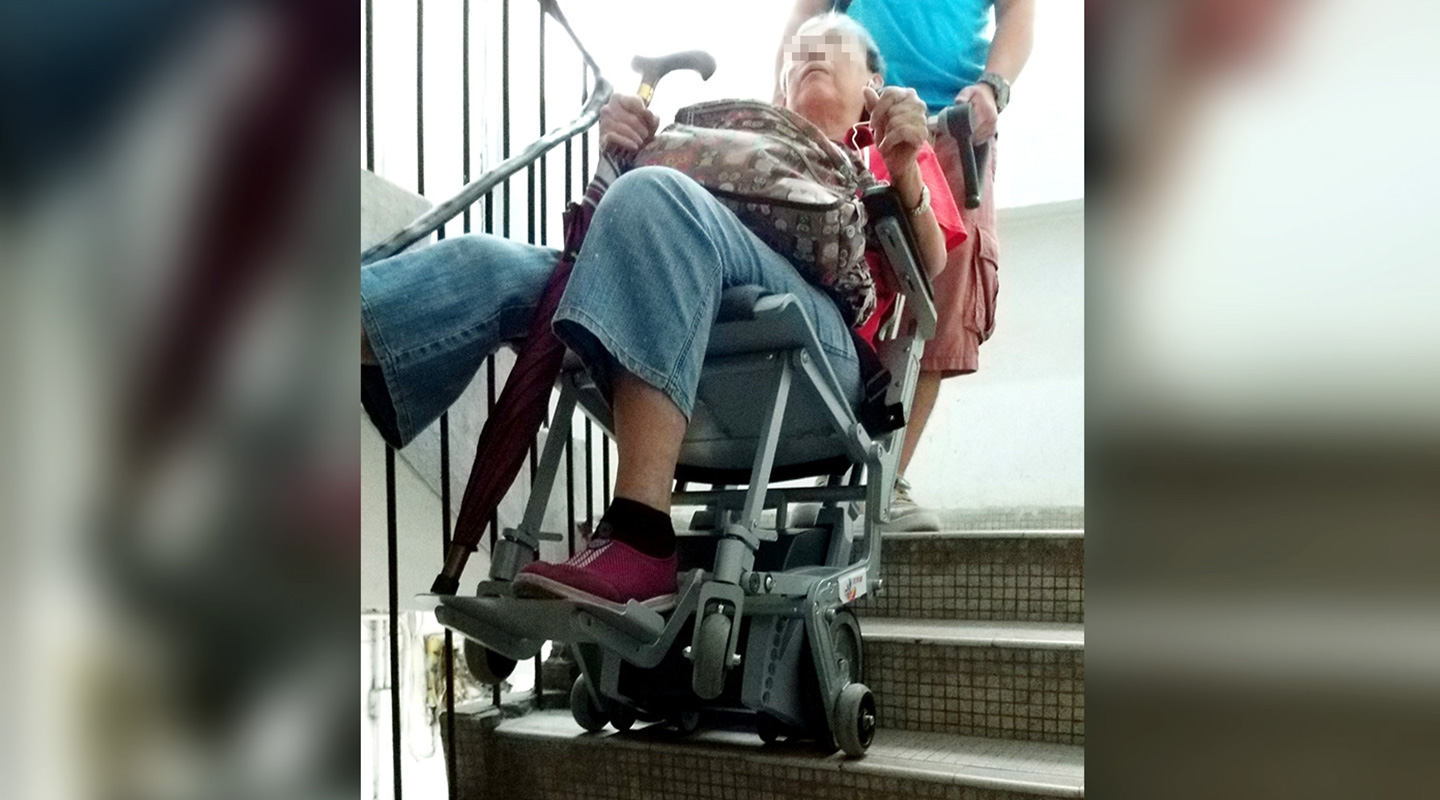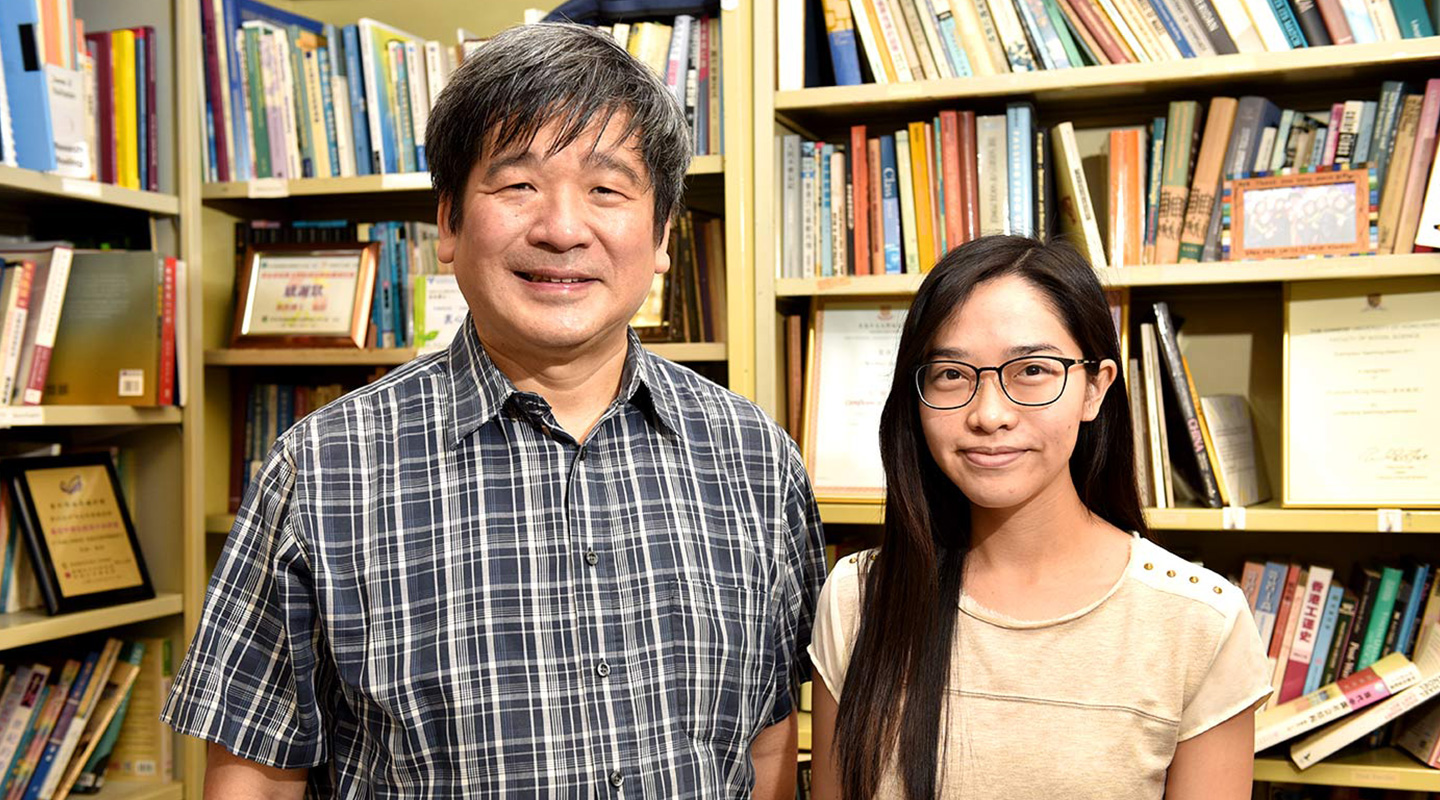Dear readers, With the launch of e-newsletter CUHK in Focus, CUHKUPDates has retired and this site will no longer be updated. To stay abreast of the University’s latest news, please go to https://focus.cuhk.edu.hk. Thank you.
The Business of Measuring Social Business
Wong Hung and his Good Impact Assessment Institute

Prof. Wong Hung of CUHK’s Department of Social Work was invited to the interview to discuss ‘social enterprises’. Shortly after sitting down, he clarified, ‘We prefer not to use the term “social enterprises”. What we do is social business.’
Social Benefits Above All
‘Social business’ is a term coined by Nobel laureate in Peace Prize Muhammad Yunus. It is distinguished from ‘social enterprise’ in that the latter pursues optimization of both profit and social benefits while the former maintains social benefits as its highest end. Only making ends meet is acceptable to a social business.
Professor Wong has seen many social enterprises in Hong Kong fettered by a profit-making goal with little time to deliver social benefits. ‘Worst of all, the mind-set and operation of the business culture might find their way into NGOs and the community economy through these social enterprises,’ he remarked worryingly.
Professor Wong’s team secured funding in March 2018 from the ‘Sustainable Knowledge Transfer Project Fund’ administered by the Office of Research and Knowledge Transfer Services (ORKTS) to set up the Good Impact Assessment Institute (GIA) two months later. Most of the social service organizations and NGOs in Hong Kong rely on external funding, whether public or private. As funders want to know if their money has been put to good use, there is an increasing demand to assess the funded organizations. GIA has partially answered this need, as it provides assessments of different funding recipients through questionnaire, interview and case study.
Before GIA’s inception, Professor Wong and his team had received financial backing from ORKTS’s ‘Knowledge Transfer Fund’ to assess small-scale projects with the aim of promoting an inclusive community. Miss Latvia Ng, now a GIA project manager, was already assisting Professor Wong then. She explained how social benefit was their overriding consideration: ‘When we were doing a community survey on a surplus food collection programme at a wet market, every CUHK student administering the survey was paired with a neighbourhood resident to interview the shop tenants. The local residents knew how to get around the market and were on familiar terms with everybody there. Our students seldom visited wet markets and did not know how to start or carry on a conversation, though they knew the survey content and goals inside out. The cost of assigning one person to handle the survey might be the lowest, but our goal of pairing interviewers was to promote cooperation and communication between groups.’

Assessment Protocol
GIA currently follows a ‘3 M’ operation model. The first M stands for ‘Measure’. A case in point is the institute’s assessment of the ‘stair climber’ service initiated by the Hong Kong Council of Social Service (HKCSS) to help residents with mobility problems negotiate the stairs in old tenement buildings. GIA evaluated the results of this initiative on whether it had given the target clients greater convenience and whether they had been able to enjoy a broadened scope of activities, hence enhancing their overall being.
The second is ‘Manage’. GIA doesn’t stop at providing assessment reports but goes a step further in helping organizations improve the efficiency of using their resources through preliminary assessment. Professor Wong explained, ‘We’ve seen many organizations with little resources at their disposal struggling with their daily routines. It is more important for these organizations to learn how to allocate resources, establish priorities and conduct business with a well-defined objective in mind.’
The third is ‘Maximize’. Take for instance the HKCSS ‘stair climber’ project again. If its impact on the target clients and the community is proven to be far-reaching and positive, GIA would continue to work for the service’s continuation, sharing and wider application.
The last M underscores GIA’s uniqueness. GIA’s vision is ‘to promote the social impacts of innovative projects in building a sustainable and just society through the provision of social impact assessment and consultation.’ To achieve this, the institute will screen its targets, instead of indiscriminatingly accepting all commissions.
GIA will take into account such criteria as whether GIA identifies with the vision of the target and whether it will listen to and accept GIA’s suggestions and be willing to cooperate to bring about greater social benefits. His team is considering an assignment on a group that screens documentary films in the community. GIA identifies with its vision and goals, and so even if there’s no precedent Professor Wong is greatly interested. ‘Traditional assessments on social projects such as those looking at their impact on parent-child relationships, for example, have readily available measurement scales and no lack of agencies providing such assessment. But evaluating how documentary viewing can change audience awareness has not been undertaken before. Given the complexity and the novelty of the project, GIA is doubly determined to rise to the challenge.’

Platform for Public Intellectuals
It is not uncommon for academics to participate in social activities. This is particularly true for scholars with a social work background. In Professor Wong’s opinion, GIA embodies the self-fulfillment of public intellectuals. ‘A public university has its own social responsibilities to fulfil. Intellectuals employed at these institutions should use their academic knowledge and research to drive social progress. Some of them must have their feet planted firmly on the ground. Otherwise, what they assess would remain superficial and they would fail to give their views and suggestions that can really work and cause changes.’
Professor Wong pinned his hopes on GIA becoming a platform to groom a new generation of public intellectuals, using its first-hand knowledge of the locals, civic groups, NGOs, the government and other stakeholders to further the social reach of research projects.
As the interview drew to a close, Professor Wong said with a tinge of melancholy: ‘Nowadays, many of the Hong Kong young people are feeling helpless. Sometimes I feel the same, too. Working at GIA enables us to get more young people involved in our work and this, in fact, is a good way to combat helplessness and create as much impact as we can.’

Reported by Yan L.
This article was originally published in No. 539, Newsletter in Jun 2019.